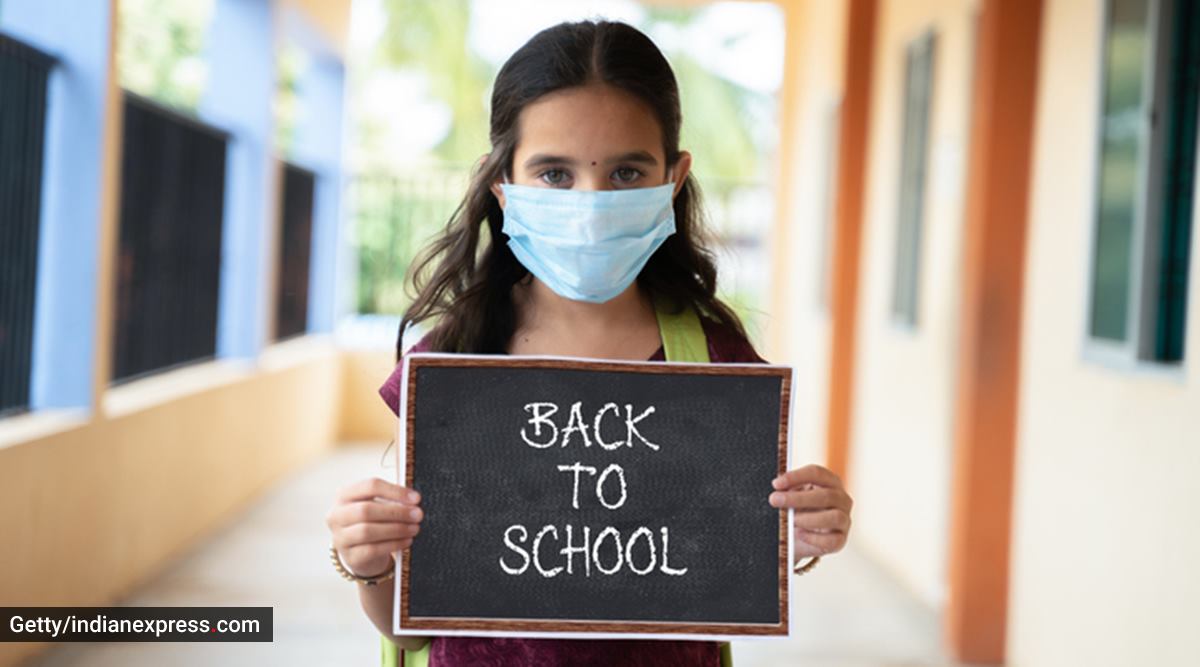Parental Guidance: Children need help to transition from virtual school
After what has been a harrowing time for most families, it seems that all we really need while helping our children transition is just to hold their hands, hug them, shower them with love and understanding.

By Geetika Sasan Bhandari
Parents and teachers need to become emotional partners for children to help them transition to in-person classrooms.
At the recently-held virtual International Summit on Early Years 2021, organised by Klay Preschools and Daycare (for which I was a presenter in the Parent Showcase section), I had the opportunity of listening to Stephen P. Zwolak, CEO, LUME Institute and Executive Director of University City Children’s Center, Missouri, USA. Zwolak, an educator with over 50 years of experience, made some very valid points about helping our children transition from virtual to in-person school. The summit’s theme focussed on parent-teacher partnerships in the new normal.
As over 14 states in India have now reopened physical classrooms, I think it’s pertinent to understand how children might react on re-entering a space they were accustomed to and then bereft of for so many months. First and foremost, explains Zwolak, children need and desire three-dimensional interactions but for so long they’ve been used to only two-dimensional experiences (via a screen). This will mean that when they enter the classroom, they are likely to be “hyper-vigilant and overstimulated”. Their mirror neurons (that allow them to learn something by watching someone else do those actions and then imitating them) have been starved and I think Zwolak meant that it is expected that they will be all over the place, seeing blocks, and art supplies, and desks; they will be excited, hyper, bouncing around.
ALSO READ |Parental Guidance: Olympics 2020 offered many ‘teachable’ moments
Therefore, “in the first few months it’s all about relationships and helping children make those transitions to friends.” There will be some children who might be entering a classroom for the first time so they have to navigate their own emotional responses like not liking someone, for example, and not wanting to play with them. At this time of transition, the teacher, says Zwolak, has to be an emotional partner to the child. “The teacher needs to figure out how to make them learn about self-care.” S/he has to be able to read the body language of the children, nuanced as it might be, and also has to understand his or her own emotional development. “When I walk into a classroom, I am bringing my life script into the classroom, I am bringing how I was raised into the classroom, and I am bringing how I was taught, into the classroom. A teacher has to ask himself or herself these questions: ‘What is my family history’, ‘why do I teach’ because when we walk into a class we can’t leave that at the door.”
Teachers must also ask themselves, he says, who held their heart and soul when they were broken and then determine whether they will be the person who will hold the heart and souls of these children, many of whom are broken-hearted.
ALSO READ |Parental Guidance: It’s decision time between physical and online school
As parents too, it’s important to question who you are. “It is remarkable how our children will poke us in so many different ways just to get answers to these questions: ‘are you credible’, ‘are you going to be my emotional partner’, ‘are you going to hold me’.”
All kids really want, deep down, is to be loved, and to feel cared for. And once that happens, we don’t need to worry about cognitive learning or emotional development. However, when the child lacks something, s/he will act out and once we realise that “all behaviour has meaning”, we will be able to figure out what the child needs at that moment – whether you are a parent or teacher.
After what has been a harrowing time for most families, it seems that all we really need while helping our children transition is just to hold their hands, hug them, shower them with love and understanding, and slowly watch them blossom and re-start their learning journeys in the new normal. Worrying about grades, pushing children to cover up learning gaps, making comparisons about which child has coped better with learning during the lockdown, are counter-productive.
ALSO READ |Parental Guidance: Once the pandemic is over, what kind of parent will you be?
As kids move back, we must operate from a place of enthusiasm, positive energy, and hope. “We know that we have to give our children hope, and today hope is directly related to being cared for.” All it seems to require, then, to give our kids hope, to help them navigate this new journey, is a little patience, and a whole lot of love.
(The writer is former Editor of Child, and has recently launched a parenting platform called Let’s Raise Good Kids. She has two kids)
For all the latest Parenting News, download Indian Express App.
Source: Read Full Article


